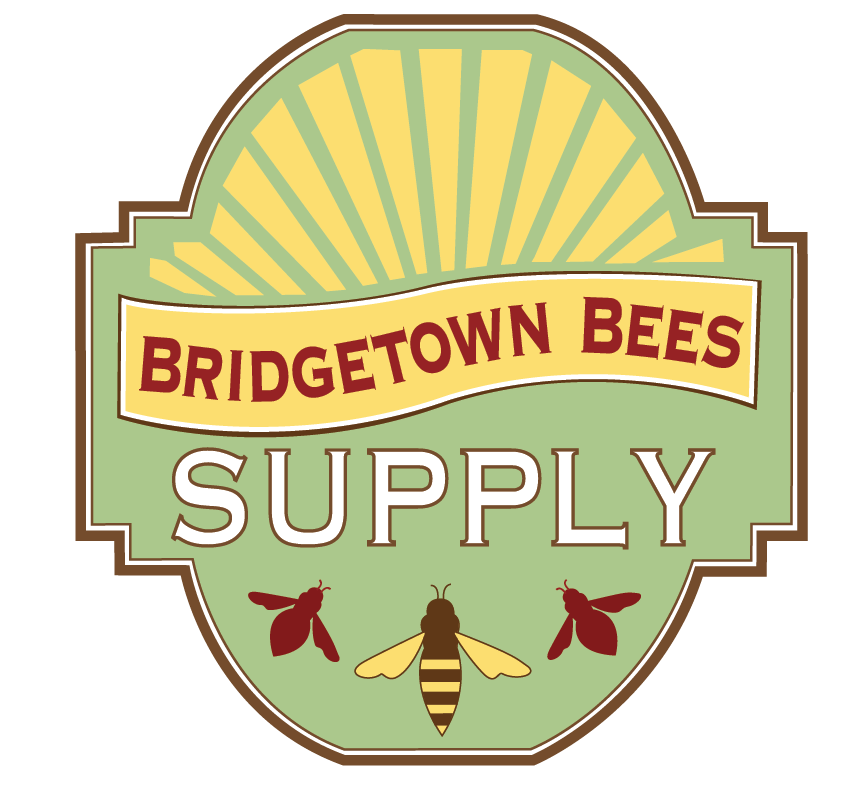2025 Beekeeping Classes
Field trip to Glen’s home apiary
********************************************
Honey bees are a wonderful addition to any garden. They remind us over and over that flowers and bees are dependent on each other for their survival But beyond that, honey bees have a magical quality to them that seems to charm and enthrall all those that keep them in their backyard gardens!
Beginning Backyard Beekeeping
Instructor and long-time Northeast Portland beekeeper Glen Andresen will take you through the basics of backyard beekeeping using only gentle and organic mite treatment techniques, which leads to less-stressed—and easier to handle—bees! Topics include basic Langstroth equipment (but also the pros and cons of Warre' and top bar hives), sources for bees, what to look for inside the colony, handling swarms, good nectar producing plants, hive maintenance, retrieving honey and beeswax, over-wintering, and pests and diseases. The class includes a three-hour+ classroom lecture and a one-hour+ field trip. Questions, including how to pay without using PayPal? Email Glen
*************************************************************************************************
1. Date: Saturday, February 22, 2025, Alder Commons (NE 42nd and Prescott); $63. Register below with PayPal
Class includes Saturday morning classroom session at Alder Commons, 9am to 12:30pm, break one hour for lunch (on your own), then 1:45pm to 3:00pm afternoon field trip to Glen’s home apiary in NE Portland, just eight blocks away. (Please note: Alder Commons requires wearing masks for all indoor activites.)
2. ***SOLD OUT*** Date: March 7 and 8, 2025, Portland Community College Community Education at SE Campus; $65
Class includes Friday night classroom session, 6pm to 9:20pm, and Saturday afternoon field trip to Glen’s home apiary in NE Portland.
This PCC class is sold out, but occasionally someone will drop the class and a space becomes available. You can always check the PCC class catalog page to see if there is an opening.
3. Date: Saturday, March 22, 2025, Alder Commons (NE 42nd and Prescott); $63. Register below with PayPal
Class includes Saturday morning classroom session at Alder Commons, 9am to 12:30pm, break one hour for lunch (on your own), then 1:45pm to 3:00pm afternoon field trip to Glen’s home apiary in NE Portland, just eight blocks away. (Please note: Alder Commons requires wearing masks for all indoor activites.)
4. ***SOLD OUT*** Date: May 2 and 3, 2025, Portland Community College Community Education at SE Campus; $65
This PCC class is sold out, but occasionally someone will drop the class and a space becomes available. You can always check the PCC class catalog page to see if there is an opening.
5. Date: June 27 and 28, 2025, Portland Community College Community Education at SE Campus; $65
Class includes Friday night classroom session, 6pm to 9:20pm, and Saturday afternoon field trip to Glen’s home apiary in NE Portland. Registration through PCC begins in May.
6. Date: September 26 and 27, 2025, Portland Community College Community Education at SE Campus; $65
Class includes Friday night classroom session, 6pm to 9:20pm, and Saturday afternoon field trip to Glen’s home apiary in NE Portland. Registration through PCC begins in August.
SIGN UP FOR ALDER COMMONS BEEKEEPING CLASSES HERE USING PAYPAL (register for PCC classes through PCC)
Please choose your class date for the Alder Commons clases from the options below. When you add an item to your cart, you will be taken to the PayPal site. If you would like to order additional items (e.g. a nuc), click on "Continue Shopping" and you will be returned to this site.
*************************************************************************************************
Backyard beekeeping: Intermediate
**NO CLASSES SCHEDULED AT THIS TIME**
Take a deeper dive into beekeeping and cover important topics such as mite control, making splits, requeening, evaluating hive strength, deadouts, swarm control and honey production. Students will also learn tips on making their own equipment. This class is designed for intermediate beekeepers with at least a year of beekeeping experience.
HONING YOUR BEEKEEPING SKILLS
A series of short monthly classes for beekeepers who are in their second or third year of beekeeping or beyond. Each month Bridgetown Bees will explore a timely beekeeping topic in detail. Classes are held at Cully Farm Store, 4209 NE Alberta St. Next class: ALL CLASSES POSTPONED UNTIL FURTHER NOTICE. PLEASE CHECK BACK IN 2025.
Second Year Beekeeping: What Do I Do Now?
Designed for the city beekeeper who likely already has a colony of bees who is ready and eager to learn more. Topics include evaluating the strength of spring colonies, making splits, swarm prevention techniques, capturing swarms, maximizing honey production and making some of your own equipment. The class includes a two-hour classroom lecture and a two-hour field trip to Glen’s apiary in Northeast Portland for live
demonstrations and hands-on learning
(weather permitting). Check back for next class.



